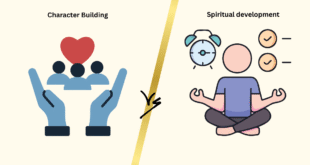Dr. Muhammad Younus Khalid- Tarbiyah Parenting Coach and Consultant
In today’s rapidly changing world, young people are struggling with one of the most pressing challenges of our time: identity crisis.
This problem is affecting their mental health, relationships, self-confidence, and spiritual well-being.
As globalization, technology, and social media dominate our daily lives, the new generation often finds it difficult to answer the most fundamental question: “Who am I?”
This article explores the identity crisis of the new generation, its causes, symptoms, and consequences, and most importantly, practical solutions based on psychology, personal development, and Islamic Tarbiyah.
What is an Identity Crisis?
An identity crisis is a state of confusion where a person struggles to understand their values, beliefs, goals, and place in society.
The term was introduced by psychologist Erik Erikson, who emphasized that developing a strong sense of identity is a crucial stage of human development, especially during adolescence and early adulthood.
Simple Definition:
An identity crisis happens when a person doesn’t know who they truly are, what they believe in, or where they belong.
For the new generation, this struggle is amplified by cultural clashes, rapid technological growth, and conflicting messages from society and media.
Why the New Generation Faces a Bigger Identity Crisis
The modern world is drastically different from what our parents and grandparents experienced.
Here’s why Gen Z and Gen Alpha are more vulnerable to identity issues:
-
Overexposure to Social Media
- Platforms like TikTok, Instagram, and YouTube constantly shape perceptions of beauty, success, and happiness.
- Young people compare themselves to influencers, leading to low self-esteem and confusion about what truly matters.
-
Cultural Conflicts and Globalization
- The new generation is exposed to multiple cultures and values at once.
- A Muslim youth, for instance, may receive conflicting messages from religious teachings, peers, and Western media, making it hard to reconcile different identities.
-
Lack of Strong Role Models
- Many families are busy, and traditional guidance systems are weakening.
- Without good role models, children look to celebrities or peers for inspiration, often adopting unhealthy behaviors.
-
Peer Pressure and Bullying
- In schools and online spaces, peer pressure forces young people to fit in, even if it goes against their core values.
- Cyberbullying further damages their self-image and sense of worth.
-
Weak Family Bonds
- Modern life’s fast pace means less quality family time.
- Without strong parent-child relationships, young people seek validation from external sources, which may misguide them.
Signs of an Identity Crisis in Young People
Parents, teachers, and mentors can watch for these warning signs:
- Constant self-doubt: “I don’t know who I am or what I want.”
- Extreme dependence on social approval through likes, followers, or peer validation.
- Mood swings and irritability without clear reasons.
- Experimenting harmful behaviors like substance abuse or inappropriate relationships.
- Confusion about religion or core beliefs.
- Feeling lost about career or life goals.
- Isolation or withdrawal from family and real-life connections.
Consequences of Identity Crisis
The identity crisis of the new generation has serious consequences, both short-term and long-term:
-
Mental Health Issues
- Anxiety, depression, and stress increase when young people lack clarity about who they are.
- Many end up feeling hopeless and purposeless.
-
Weak Faith and Morality
- Confusion about values leads to drifting away from religion.
- Without clear moral guidelines, youth may engage in destructive behaviors.
-
Poor Decision-Making
- When a person doesn’t know their identity, they are easily influenced by others, making impulsive and harmful choices.
-
Broken Relationships
- Struggling with self-identity can cause conflicts with family and friends, leading to isolation and loneliness.
-
Lost Potential
- Many talented young people fail to use their abilities productively, wasting opportunities to benefit themselves and society.
Islamic Perspective on Identity
Islam offers a clear and powerful framework for resolving identity crises.
At its core, a Muslim’s identity is rooted in servitude to Allah (SWT).
Quranic Verse:
“Indeed, my prayer, my sacrifice, my living and my dying are for Allah, Lord of the worlds.”
(Surah Al-An’am, 6:162)
This verse teaches that true identity comes from knowing your purpose, which is to worship Allah and live according to His guidance.
When youth understand this, they can navigate modern challenges with confidence.
How to Solve the Identity Crisis of the New Generation
Here are practical, step-by-step solutions for parents, teachers, mentors, and youth themselves:
-
Strengthening Family Bonds
The family is the first school of identity formation.
- Spend quality time with your children daily.
- Engage in open conversations about life, challenges, and values.
- Share stories from the Qur’an and Sunnah to inspire them.
Tip: Family rituals like praying together, weekly family meetings, or shared meals build connection and trust.
-
Building a Strong Islamic Identity
Parents and educators should nurture deen-centered self-worth in young people:
- Teach them that being Muslim is a source of pride and strength.
- Involve them in community service to connect faith with action.
- Encourage them to learn about prophets and righteous leaders as role models.
-
Limiting Negative Media Influence
Social media is one of the biggest causes of identity confusion.
- Set healthy screen time limits for children.
- Discuss the difference between online fantasy and real life.
- Promote productive online activities, like Islamic learning apps or skill-building courses.
-
Encouraging Critical Thinking
Instead of blindly following trends, youth must learn to analyze and question:
- Teach them to evaluate ideas through an Islamic worldview.
- Encourage asking questions about difficult topics in a safe, respectful environment.
- Guide them to seek knowledge from authentic sources.
-
Providing Positive Role Models
Children need examples of integrity, strength, and faith:
- Parents must model the behavior they want to see.
- Introduce youth to inspiring Muslim scholars, leaders, and thinkers.
- Build mentorship programs where teenagers can learn from trusted adults.
-
Nurturing Emotional Intelligence
Identity crisis is often linked to uncontrolled emotions.
- Teach children to recognize and manage their feelings.
- Practice empathy and listening skills at home.
- Use Islamic teachings on patience (Sabr) and gratitude (Shukr) to develop emotional balance.
-
Goal Setting and Purposeful Living
A clear purpose helps youth overcome confusion.
- Help them set short-term and long-term goals aligned with their values.
- Teach them that success is not just material but also spiritual and moral.
- Encourage participation in activities that develop skills and confidence.
-
Tarbiyah-Oriented Education
Schools and educational systems must integrate Tarbiyah (holistic Islamic upbringing) into their curriculum:
- Character-building lessons.
- Discussions on identity, ethics, and faith.
- Opportunities for teamwork and leadership.
Role of Parents in Solving Identity Crisis
Parents are the first and most influential teachers in a child’s life.
To prevent and solve identity crises:
- Be approachable and non-judgmental, so your children trust you.
- Share your own struggles and how you overcame them.
- Avoid labeling your child as “lazy,” “naughty,” or “useless.”
- Celebrate small achievements to boost their self-confidence.
Community and Society’s Role
The broader Muslim community must also support the new generation:
- Create youth-friendly spaces like Islamic centers, sports clubs, and study circles.
- Organize workshops and seminars on self-development and faith.
- Address sensitive issues like mental health, peer pressure, and modern temptations openly and constructively.
When to Seek Professional Help
Sometimes, an identity crisis may lead to serious psychological problems.
Seek professional counseling if you notice:
- Signs of depression or suicidal thoughts.
- Severe anxiety or panic attacks.
- Persistent isolation or withdrawal from daily activities.
Note: Choose counselors who understand both modern psychology and Islamic principles for balanced guidance.
Practical Activities for Youth to Build Strong Identity
- Daily Journaling: Write thoughts, goals, and gratitude lists.
- Volunteer Work: Serving others strengthens empathy and purpose.
- Skill Development: Learn new skills to boost self-confidence.
- Group Quran Study: Builds spiritual grounding and community support.
- Digital Detox: Take regular breaks from social media.
Dua for Guidance and Strong Identity
Parents and youth should regularly make dua for clarity and guidance:
“O Allah, guide me to the best of manners, none guides to the best of them but You. Turn me away from evil manners, none turns them away but You.” (Muslim)
Conclusion
The identity crisis of the new generation is a serious challenge, but it is not impossible to solve.
By combining Islamic Tarbiyah, modern psychological insights, and strong family bonds, we can help young people develop a clear sense of self, rooted in faith and purpose.
Parents, educators, and communities must work together to provide love, guidance, and safe spaces for youth to explore their identities positively.
When young Muslims understand who they are and why they were created, they can rise above confusion and become leaders, changemakers, and ambassadors of truth.
“Our Lord, grant us from among our wives and offspring comfort to our eyes and make us an example for the righteous.”
(Surah Al-Furqan, 25:74)
 Edutarbiyah English Blog of Parenting and Tarbiyah
Edutarbiyah English Blog of Parenting and Tarbiyah



